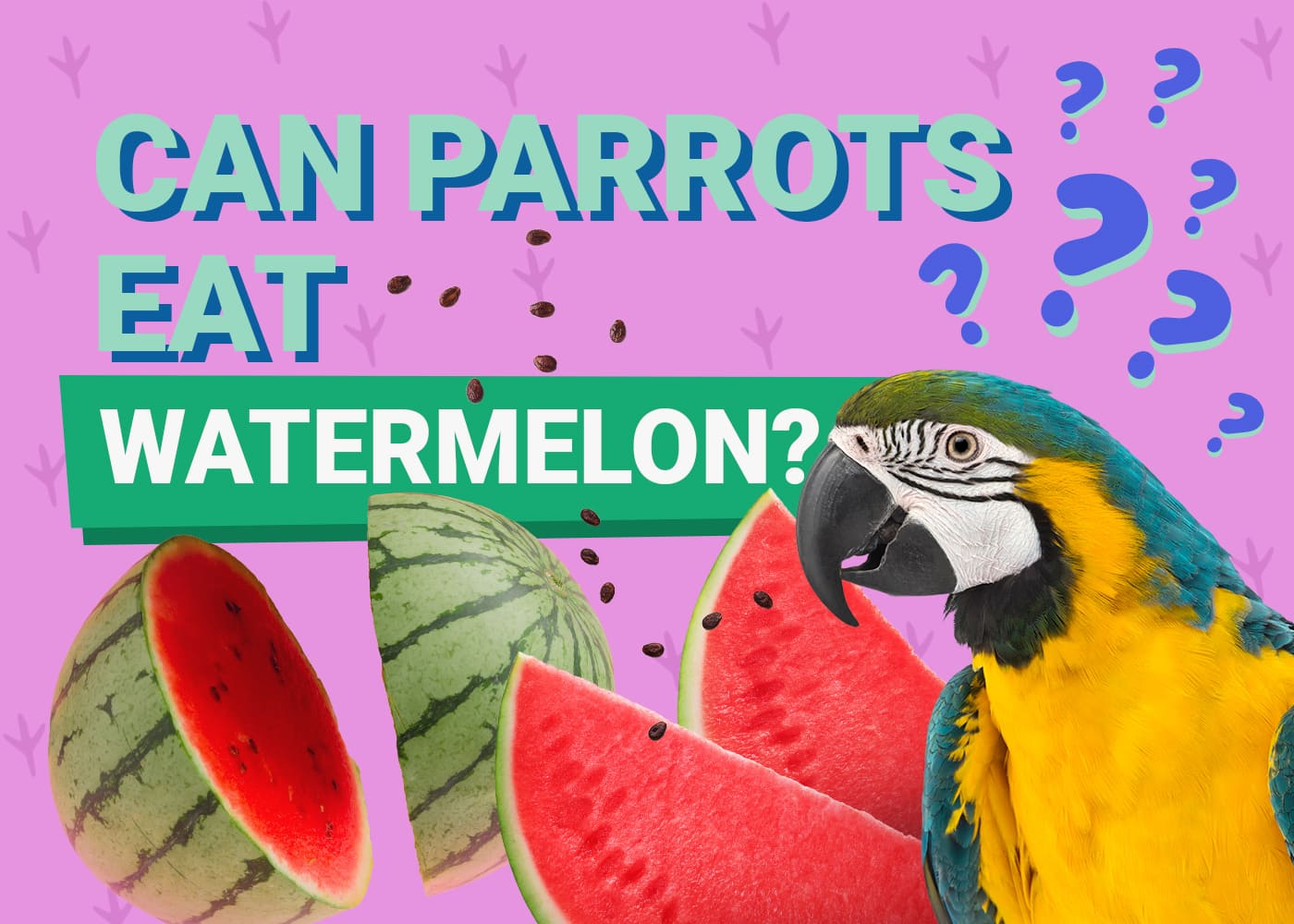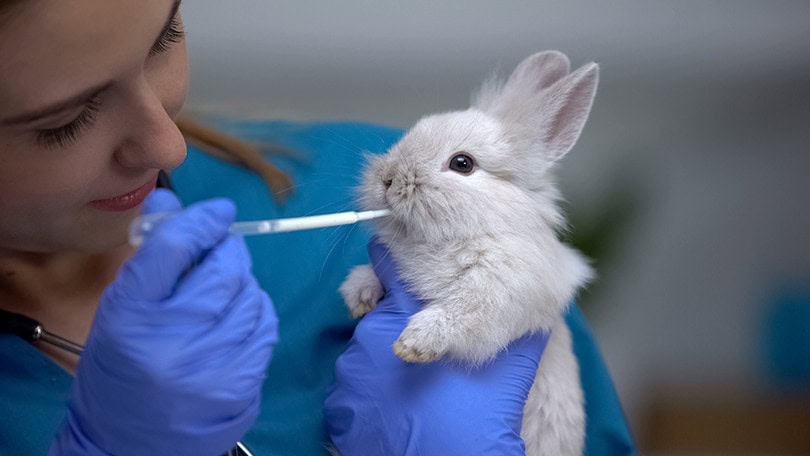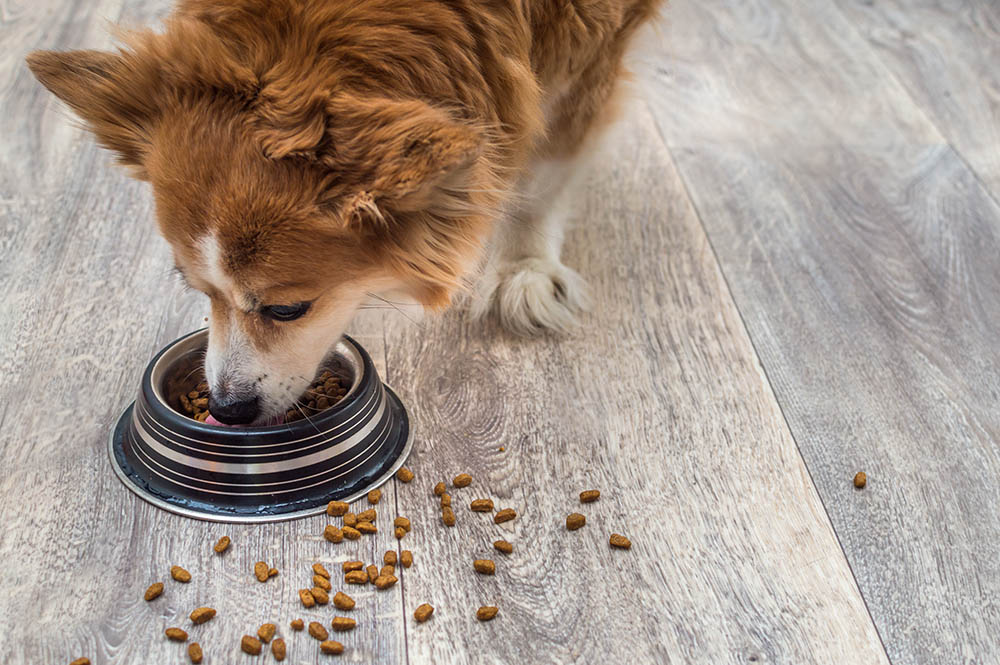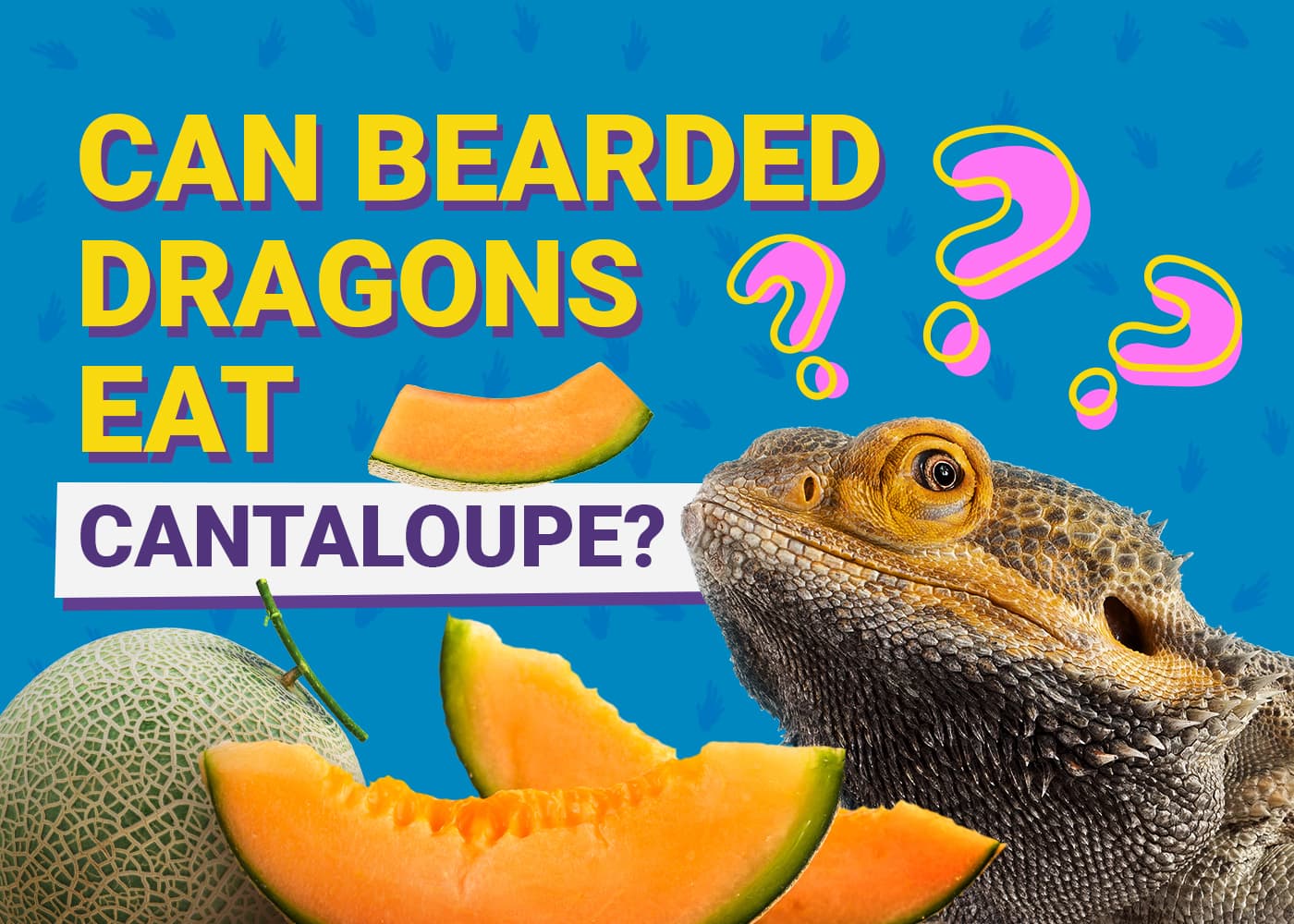VET APPROVED

The information is current and up-to-date in accordance with the latest veterinarian research.
Learn more »Click to Skip Ahead
Watermelon is a juicy, delicious, and low-calorie snack packed with health benefits. It may be one of your favorite fruits. But as a parrot owner, you must be lingering over this question.
Can parrots eat watermelon? Yes, watermelon is considered safe for pet parrots. For most pet parrots, fruits (including watermelon) should comprise a very small portion of their daily intake. Nonetheless, they shouldn’t be viewed as treats; fruits are considered necessities for almost all pet parrots and are also extremely beneficial for them when properly portion controlled.
Here is everything you need to know about parrots eating watermelons.

Fruits & Parrots
Many parrot species are classified as frugivores (fruit eaters). In the wild, these parrots primarily feed on fruits and play a key role in their ecosystems by dispersing the seeds of the fruits they eat. Even parrot species classified as granivores (seed eaters) enjoy fruit and often opportunistically scavenge fruits they come across.
High amounts of fruits are often justified for the diets of wild parrots because they expend a lot of energy flying around everyday in search of food. Their meals aren’t guaranteed either, and opportunistically eating fruit whenever the opportunity arises definitely makes sense for them.
Pet parrots live relatively sedentary lives and as a result, they don’t fare well on diets that are very high in fruits. The sweetness of fruits is attributed to their sugar content. This sugar is what makes fruits so appealing to us (taste-wise) and also what makes them unhealthy for our pet parrots if offered in high amounts because they quickly lead to an overweight pet bird.
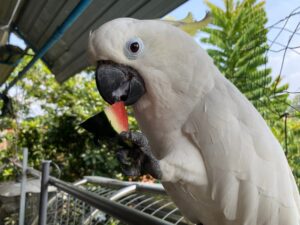
Nonetheless, fruits are considered essential for almost all pet parrots and should definitely be incorporated into their diet. Though the amount of fruits you should offer your pet would vary depending on several factors (such as their age, species, sex, molting status, and reproductive status to name a few), veterinarians agree that fruits should not be excluded from the diet of most pet parrots. As such, figuring out the portion size of fruit in relation to the rest of your parrot’s diet should definitely be something you should consider discussing with your veterinarian.

Benefits of Feeding Watermelon to Parrots
Watermelon is not toxic for parrots, and is readily accepted by most parrots as well. Interestingly, it likely isn’t a common food for wild parrots, as they usually prefer fruits higher up in trees, or fruits small enough for them to carry elsewhere to eat, away from the prying eyes of a potential predator.
The benefits of watermelon can be summarized as follows:
- Water: Watermelon stays true to its name and like most fruits is mostly composed of water. Over 90% of the fruit is in fact water. This can definitely help your pet stay well hydrated, though it isn’t a substitute for water.
- Energy: Most of the carbohydrates in watermelon are in the form of naturally occurring sugars. These do offer your pet energy.
- Vitamins: Like most fruits, watermelon has an assortment of various vitamins that can help your pet meet their daily needs. Many of these also act as antioxidants. However, do keep in mind that some of these vitamins (such as vitamin C) are not essential for parrots (as they can make this themselves). Also keep in mind that with vitamins, more isn’t necessarily better – an extreme abundance of a vitamin may definitely be detrimental to some parrot species.
- Minerals: Watermelon also contains an assortment of minerals. However, it’s not possible to look at each mineral separately, as they play off and interact with each other within your pet’s body. As with vitamins, more of a specific mineral isn’t necessarily a good thing; in fact, a mismatch of mineral ratios will definitely cause a parrot harm in the long run.
- Enrichment: Most parrots enjoy fruits and start dancing excitedly whenever they’re offered their favorite type of fruit. If your parrot enjoys watermelon, a small morsel can definitely contribute towards their mental stimulation and enrichment.
Without a doubt, watermelons are beneficial for parrots. However, do note that you shouldn’t offer your parrot just watermelon. Instead, it should be offered as part of a salad which contains other fruits and vegetables as well (vegetables should be more abundant than fruit for most pet parrots).
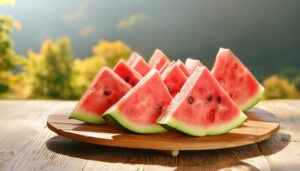
Feeding Watermelon to Your Parrot
Before offering your parrot watermelon, you should thoroughly wash the fruit’s rind. This is to ensure you remove any dirt, debris, or pesticide residue on the rind. Most larger parrots (such as macaws) enjoy holding their food in one claw while eating, and as such, cutting the watermelon into very small pieces might not be to your pet’s preferences.
However, not all parrots are the same, and naturally foraging species (e.g.: budgies, cockatiels) might prefer smaller pieces of watermelon which they don’t have to bother holding. They may prefer the fruit attached to a clip and secured to their cage wall. It does take some experimenting to figure out what your parrot prefers.
Fruit should generally only comprise a very small portion of your pet’s diet. Though recommendations are different for each species and each pet, the following guidelines may serve as a rough guide and a safe starting point.
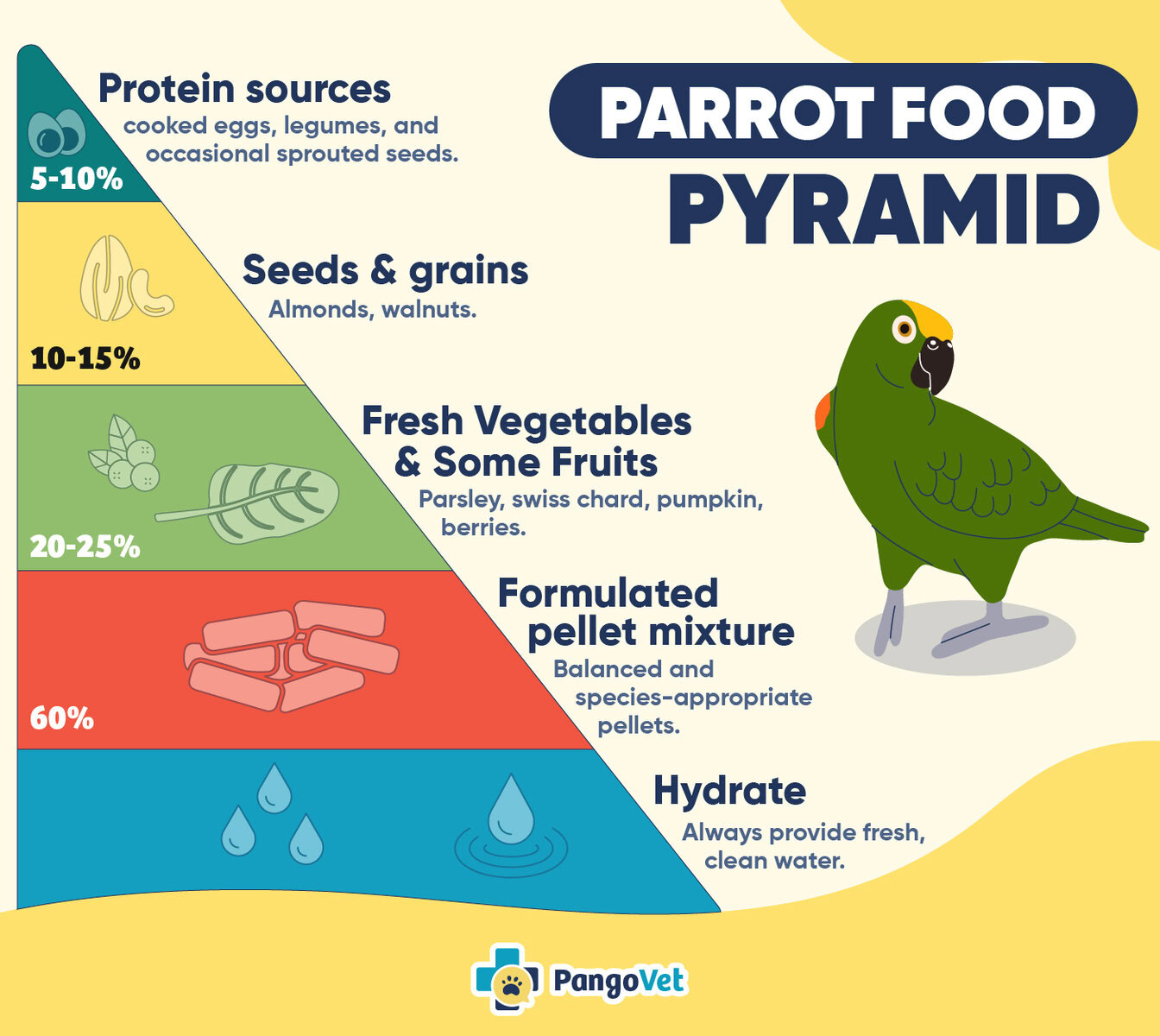
Is It Safe for the Parrot to Eat Watermelon Seeds?
Yes. When offered watermelon, parrots tend to go for the seeds first. They move the pink pulp around as they pick out the seeds, which provides enrichment. However, this trait might also be a remnant of their evolutionary role as seed dispersers.

In Summary
Yes, parrots can eat watermelon, and like many fruits, watermelon can offer your parrots benefits. However, given the high sugar content of watermelon, it definitely shouldn’t be a large part of your parrot’s diet.
Always keep in mind that your pet’s needs will vary from those of other parrots and as such, it’s always best to consult your veterinarian before modifying their diet.
Featured Image Credit: Valdas Vrubliauskas, Shutterstock
